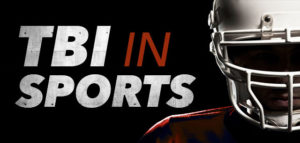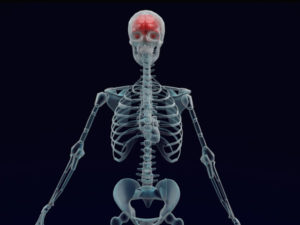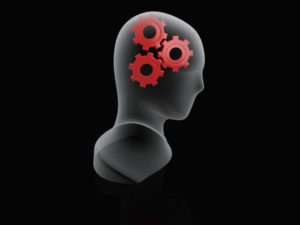 Sports are an excellent form of both recreation and physical fitness for adults and children alike. Unfortunately, with all of the benefits of sports also comes the risk of injury. Athletes suffer many different types of injuries on a regular basis, including sprains, strains, fractures, and more. One common sports injury that can have long-lasting complications for athletes is a traumatic brain injury (TBI).
Sports are an excellent form of both recreation and physical fitness for adults and children alike. Unfortunately, with all of the benefits of sports also comes the risk of injury. Athletes suffer many different types of injuries on a regular basis, including sprains, strains, fractures, and more. One common sports injury that can have long-lasting complications for athletes is a traumatic brain injury (TBI).
TBI is defined as damage to part of the brain caused by an external mechanical force that results in brain dysfunction. Brain dysfunctions from a TBI often result in the following:
- Headaches
- Dizziness or disorientation
- Seizures or convulsions
- Nausea or vomiting
- Confusion
- Balance and coordination issues
- Agitation
- Memory issues
- Challenges in oral and written communication
- Difficulty concentrating
- Difficulty following directions
- Slurred speech
- Depression
- Vision Problems
As you can imagine, these symptoms can often have a profound effect on a TBI victim’s life.

In sports, such forces that can cause TBI may include getting hit by an object (such as a bat or a ball), physical contact with another player, hitting your head on the ground, or even getting jolted so the brain shakes inside your skull. TBIs can range from relatively minor concussions to severe trauma that causes permanent disabilities. Any type of brain injury should be properly diagnosed, treated, and monitored. Some TBI victims require extensive treatment due to
Once you have received one TBI—even a minor one—your chances increase of receiving subsequent brain injuries with even the slightest contact. Repeated brain injuries[2] can lead to serious cognitive and physical dysfunction and also to medical conditions down the road. This is, unfortunately, common with athletes who often return to playing sports following recovery from a TBI.
Every athlete or parent of a young athlete should be aware of the specific situations that most commonly lead to TBI in sports. The following is some information regarding TBI risks for athletes.
Not Having Appropriate Safety Equipment
If you are playing a contact sport, you should always have the proper safety equipment to keep all of your body parts adequately safe. Having the correct helmet is especially important to protect you from TBI. For example, baseball batters should always wear a special batting helmet in case a pitch would hit them in the head. Additionally, hockey players should always wear helmets in case they fall and their head hits the ice or they are knocked into the boards. Protective head gear is perhaps most important for football players because of the constant risk of contact with other players, tackles, and dangerous hits. If you play a sport and do not have the adequate safety equipment or have a defective helmet, your risk of TBI greatly increases.
Failing to Medically Assess Athletes on the Field

Many times, when athletes bump their heads, they simply wave it off and continue to play. However, in many situations, the signs and symptoms of a concussion are not noticeable for a few hours or even days. If a player does not get medically assessed following any type of trauma to the head, he or she may continue to play with damage to the brain, which can be highly dangerous and can lead to a much worse TBI if another hit to the head should occur. Additionally, players who may have a concussion may be disoriented and less coordinated without even realizing it, which may increase the odds of contact, falling, or other events that may cause more head trauma. Any coach or team medical specialist should stop play immediately and insist that a player undergoes a medical evaluation after any type of blow to the head. If they fail to do so, they are increasing the chances of TBI among their athletes.
Allowing Athletes to Return to Play After a TBI
Like any other type of injured athlete, players who have suffered a TBI are generally eager to return to their sport. Likewise, coaches are often impatient to have valued players return to the field, especially in professional sports. However, returning to play following any type of TBI should happen gradually, generally following the following steps:
- Full physical and cognitive rest while the athlete is still experiencing any type of signs or symptoms.
- Once symptoms have cleared, an athlete should begin to exercise—but not yet participate in full play—and gradually increase the physical intensity. An athlete should stop and return to rest if any symptoms reoccur.
- The athlete should undergo another medical evaluation and receive clearance from a medical professional to return to play.
- Return to playing the sport.
If an athlete returns to playing a sport too quickly and receives another blow to the head, the resulting TBI can be much more severe with longer-lasting symptoms than the original injury.
Encouraging Physical Contact and Rough Play
Part of sports is entertaining the spectators, especially on the professional level. Professional sports franchises want to fill stadiums and, therefore, want the game to be exciting and intense. This is generally the reason why the National Football League (NFL) wants thrilling tackles and hits to occur, as well as why the National Hockey League (NHL) allows the players to fight, including multiple punches to the face and head.
However, in recent years, both the NFL[3] and the NHL[4] have faced legal claims from former players regarding the long-term effects they have suffered due to repeated TBIs. Some of the conditions the players have suffered due to permanent brain damage following their careers include the following:
- Early onset dementia
- Early onset Alzheimer’s disease[5]
- Severe depression
- Chronic traumatic encephalopathy (CTE)[6]
The lawsuits not only claim that the leagues encouraged rough play, but also that the NFL specifically gave players harsh painkillers and other pills so that they would return to play after a blow to the head. The claims also allege that both leagues downplayed the long-term risks of multiple TBIs.
Traumatic brain injuries can be very harmful, so every athlete should be aware of the risks of TBI in sports and should take steps to protect themselves.
- http://news.osu.edu/news/2014/11/16/danger-of-repeat-head-injuries-brain%E2%80%99s-inability-to-tap-energy-source/
- http://nflconcussionlitigation.com/
- http://espn.go.com/nhl/story/_/id/10787862/retired-players-file-class-action-lawsuit-nhl-targeting-concussions-violence
- http://www.alz.org/alzheimers_disease_what_is_alzheimers.asp
- http://www.ncbi.nlm.nih.gov/pmc/articles/PMC2945234/